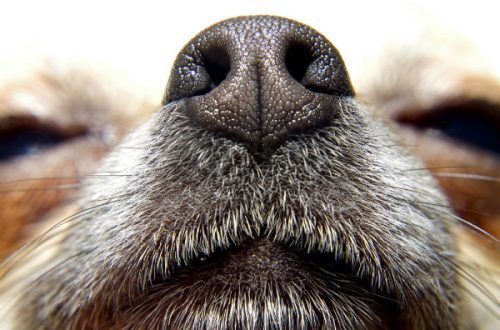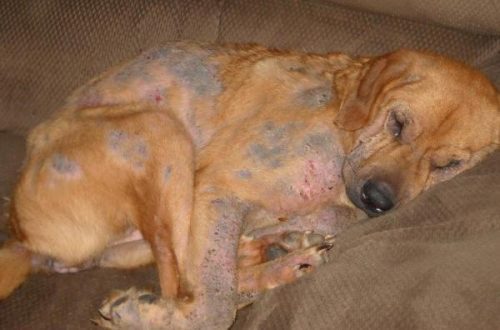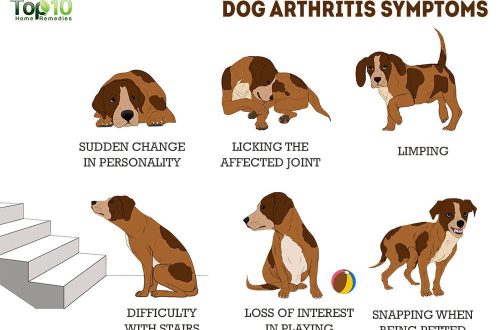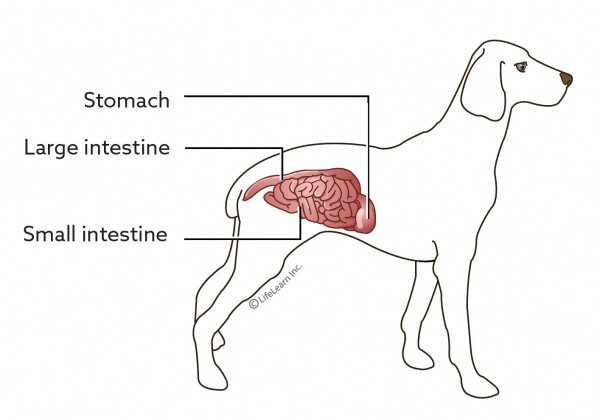
Gastritis in dogs
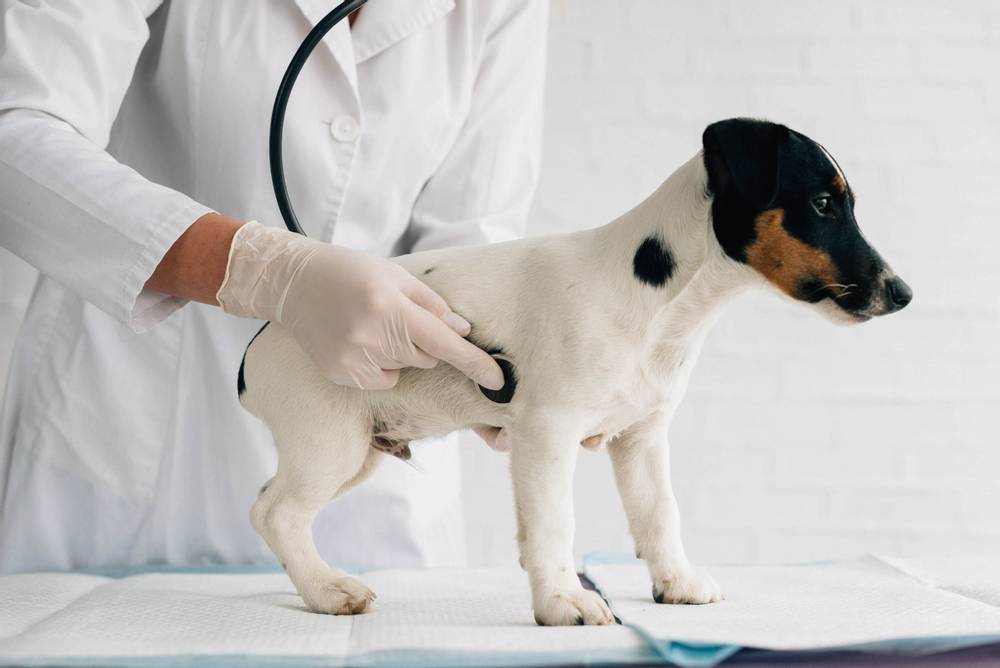
The main cause of gastritis is malnutrition of the dog. Feeding errors are very common. Many owners, wishing the best for their four-legged friend, unconsciously do them daily. Unfortunately, the dog cannot say what it needs. It is important to understand that a dog is not a small wolf or a person, it has its own special needs, which may differ depending on the breed, age, activity level and individual characteristics. Therefore, the answers to the questions of what a dog can eat and how to feed a pet will be different in each case.
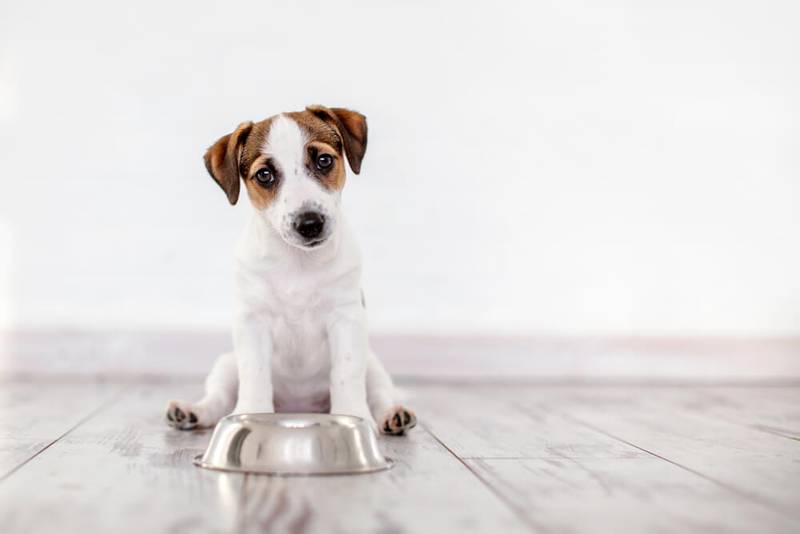
Also, a dog can provoke the development of gastritis by eating garbage, chemicals, plants, or overeating in general.
However, in addition to an undesirable food reaction, there may be other reasons for the development of gastritis. Untimely or insufficient treatments for helminths can lead to parasitic gastritis, chronic renal failure can lead to general intoxication of the body and the development of uremic gastritis. Also, other independent diseases (for example, endocrine pathology hypoadrenocorticism) can lead to the development of reflux gastritis. The dog can eat inedible objects that cause traumatic gastritis and gastroenteritis.
Eosinophilic gastritis is allergic in nature and refers to an undesirable food reaction, but does not depend on the quality of nutrition, but rather is an individual feature of the dog.
The use of certain groups of medicines, steroid and non-steroidal anti-inflammatory drugs (NSAIDs) can also lead to the development of gastritis.
Contents
Symptoms of gastritis in dogs
Symptoms of gastritis in a dog can be varied, but vomiting is the most common and characteristic. It can be periodic in the case of chronic gastritis or more frequent during an exacerbation. Nevertheless, it is not exclusively a symptom of gastritis and can accompany other diseases, therefore, in addition to symptomatic care, a comprehensive diagnosis of the pet is necessary. Also, gastritis can be manifested by a change in appetite – its decrease, absence or perversion (eating inedible objects, changing taste preferences). There may also be diarrhea against the background of secondary developed enteritis – inflammation of the intestine.
Symptoms of acute gastritis in a dog will be similar, however, vomiting will be more frequent, acute, may have blood impurities, and abdominal pain is also characteristic (the dog will not let you touch the stomach). The general condition will be depressed, the dog will be apathetic, lethargic, will refuse to play.
Diagnostics
Since many extragastric and systemic pathologies present similarly, it is important to apply a systematic approach to diagnosis if a dog exhibits symptoms of gastritis.
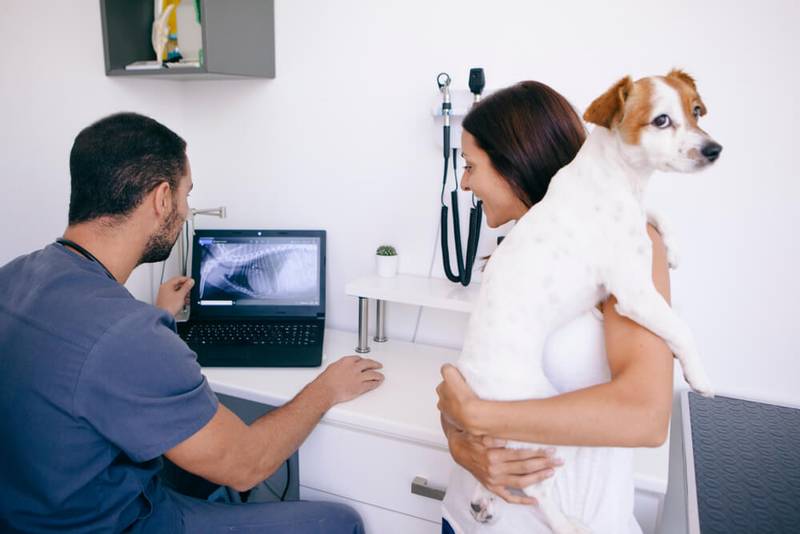
You must come to the appointment and tell the doctor that you are seeing signs of gastritis in a dog, describe in detail all the changes in the pet’s condition and his diet (if any). Your veterinarian may recommend the following diagnostic steps:
Blood tests (general clinical, biochemical, electrolytes);
Ultrasound survey of the abdominal cavity or gastrointestinal tract (it is preferable to do a survey ultrasound, as it will be more informative and exclude or reveal changes in other organs);
X-ray examination of the abdominal cavity, X-ray contrast for the diagnosis of obstruction of the gastrointestinal tract / the presence of a foreign body in the gastrointestinal tract;
Gastroscopy, with the possible sampling of material for histological examination and confirmation of the diagnosis of gastritis.
To conduct all of the above studies, the dog must be hungry (on average from 8 to 12 hours, a more accurate range is set by the doctor).
In the absence of current vaccination, the doctor may recommend a PCR test for viral infections. And in the absence of treatments for internal parasites, a parasitological study of feces may be required.
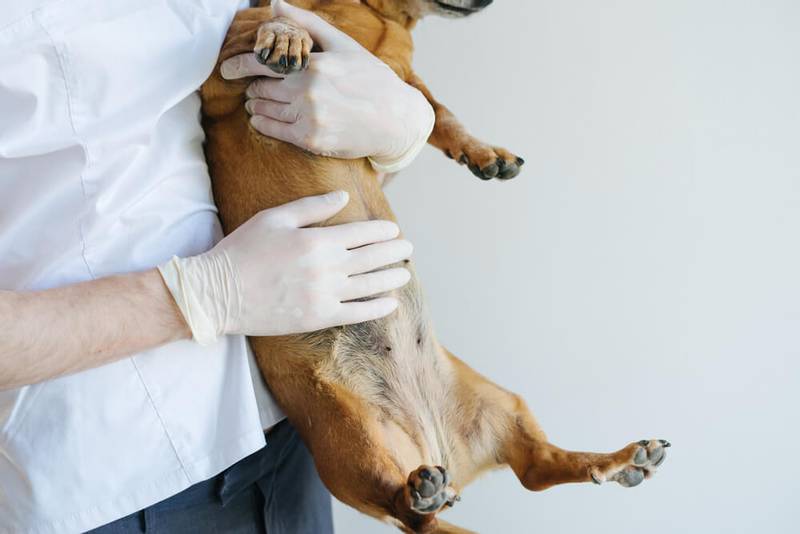
The relevance of research and the procedure for conducting them are determined solely by the attending physician, individually, based on the history and examination results. Therefore, it is better to entrust the treatment of gastritis in a dog to a professional.
Gastritis treatment
Unfortunately, it is impossible to answer in one word the question of how to treat gastritis in a dog, since there are many nuances, but we will try to analyze the general provisions and principles of approach to this disease.
First of all, you need to stop vomiting. Yes, contrary to the common opinion that the body is cleansed with vomiting and that it is useful. No, it’s not. Vomiting is a pathological process, and if it is not stopped, it will lead to more serious disorders (for example, intestinal intussusception due to impaired peristalsis). For this, drugs from the group of antiemetics or (in severe cases) their combination are used.
In the case of a long course of the disease or its acute form, infusion therapy (droppers) is necessary to restore the water and electrolyte balance, that is, what the dog lost with vomiting and diarrhea. This is the most effective way to improve the condition of a pet with intoxication and dehydration. Forced drinking of liquid will not improve, and sometimes even aggravate the situation.
Also, to protect the gastric mucosa, drugs from the group of antacids should be used: these drugs reduce the level of acidity in the stomach and prevent the appearance of erosions and ulcers. If we disassemble the treatment of gastroduodenitis in a dog as a separate disease, then this would be the main group of drugs that would be worth mentioning. However, the general term gastritis is more commonly used.
In some cases, antibiotic therapy may be required. When prescribing antibiotics, both in oral and injectable form, it is very important not to miss the next dose of the drug. This can make it difficult to continue treatment and achieve the desired effect.
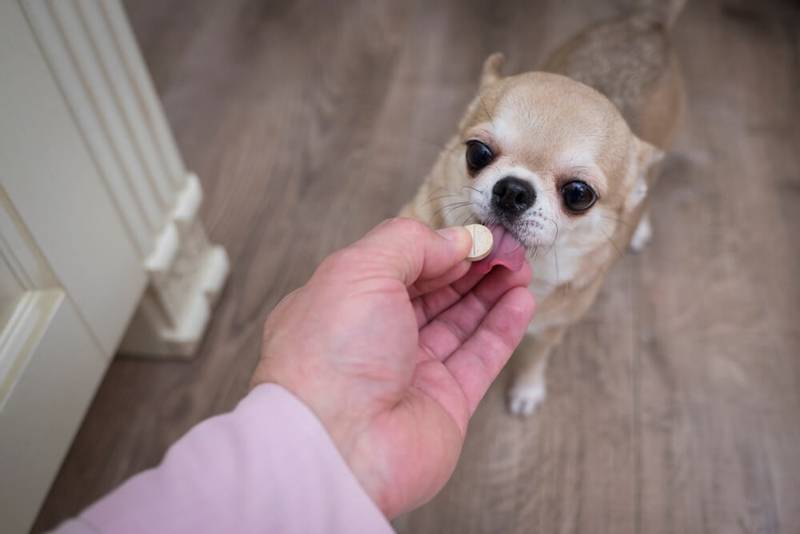
The appointment of probiotics is controversial, however, they can be prescribed in the format of complex therapy.
Diet is no less important than drug therapy for gastritis, since the dog must receive all the necessary nutrients in an easily digestible form.
Treatment of gastritis in puppies
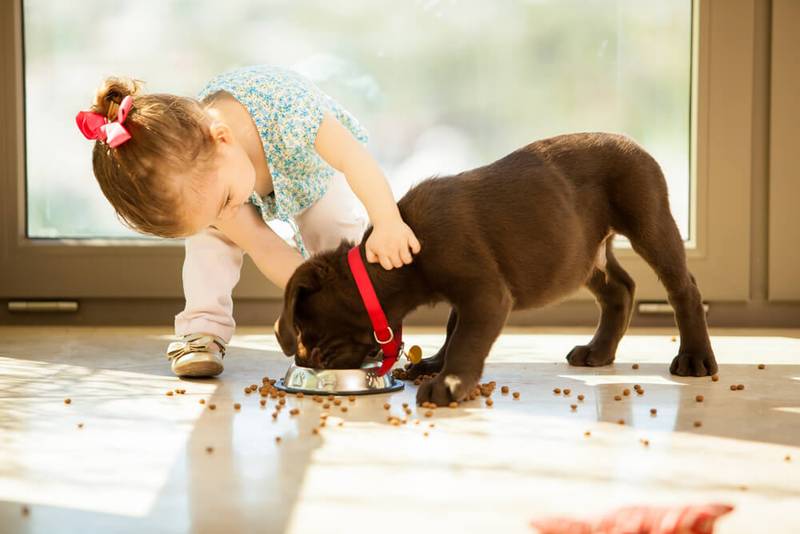
Gastritis in a puppy, unlike adult dogs, is more often associated with viral infections or parasitic infestations and is less often a concomitant disease. Nevertheless, nutrition plays a key role in the development of gastritis, as in adult dogs. If the treatment of gastritis in puppies is not much different than in adult dogs, then the diet should be tailored to the needs of the puppy, not the adult dog. Unfortunately, it is impossible to make a universal diet, since this is due to a significant difference in the needs of calcium, phosphorus and their ratio, as well as an increased need for protein. From industrial feed, Royal Canin gastro intestinal puppy is suitable. And if you want to feed with natural products, you still can’t do without the help of a nutritionist to balance all the necessary nutrients.
What to feed a dog with gastritis?
Proper nutrition of a dog with gastritis is the key to successful treatment. The most important question that arises when choosing food is industrial food or natural food? I would like to immediately please lovers of natural nutrition: it is not at all necessary to switch to industrial feed. The choice always remains with the owner. In addition, it is important that the dog eats diet food, so his preferences also play a role. If the dog ate industrial food, then, of course, it is easier to switch from a regular to a medical line of food. It is also convenient for the owners, as it does not require cooking.
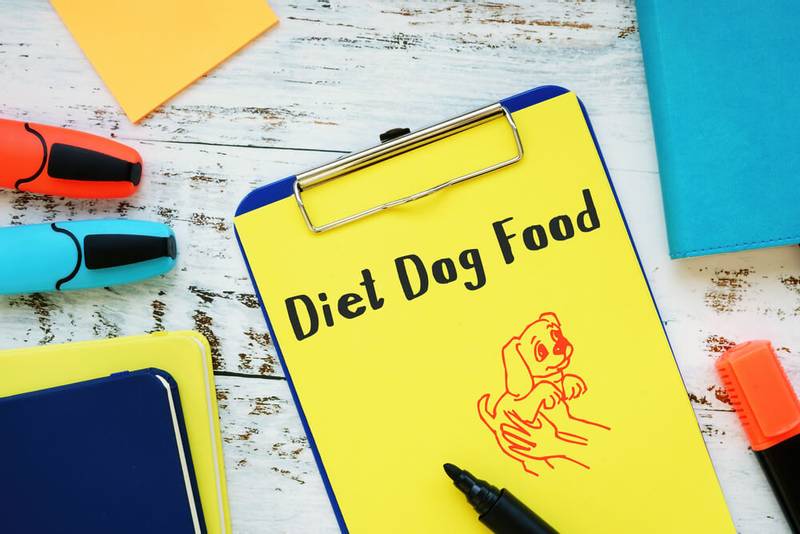
Food for dogs with gastritis should satisfy all the features of digestion in this condition, contain easily digestible proteins, so the usual regular diet will not work. It is most optimal to use premium or super-premium food lines, they are made in accordance with the nutritional characteristics of a dog with gastritis:
Royal Canin gastro intestinal / Royal Canin hypoallergenic;
Proplan EN / Proplan HA;
Hill’s i/d;
Gastrointestinal mongolia.
Gastroenterological lines are suitable for almost all diseases of the gastrointestinal tract, but hypoallergenic feeds are suitable when the development of gastritis is caused by food hypersensitivity. However, without extreme necessity and consultation with a specialist, it is not recommended to use them for puppies.
When choosing a natural diet, a dog’s diet for gastritis should absolutely not contain salty / smoked / fried foods (however, this is not the best choice for a healthy dog either).
Feeding should be done more often and in small portions.
There are two methods of feeding with gastritis:
Protein according to needs (there is a mandatory minimum that the dog must receive). The main source of energy is carbohydrates, necessarily boiled, in a different form the dog does not absorb them. Moderate fat content.
Restriction of carbohydrates. High protein – necessarily easily digestible muscle meat, not offal. So, a scar beloved by many for nutrition with gastritis will not work. Fat is moderate or high. Low carbohydrate content.
Turkey, chicken, rice, potatoes are suitable as staples, but not in case of hypersensitivity to one of these components.
It is important to understand that feeding a dog with gastritis is one of the most important factors in recovery, so it is best to select food individually with a specialist based on the results of the diagnosis and the previously used diet. You can consult a nutritionist online in the Petstory mobile app. You can install the application .
Measures to prevent gastritis
First of all – competent feeding. The dog must receive all the necessary nutrients in a suitable form. This can be both natural feeding (it is important that the diet is balanced), and ready-made industrial feeds.
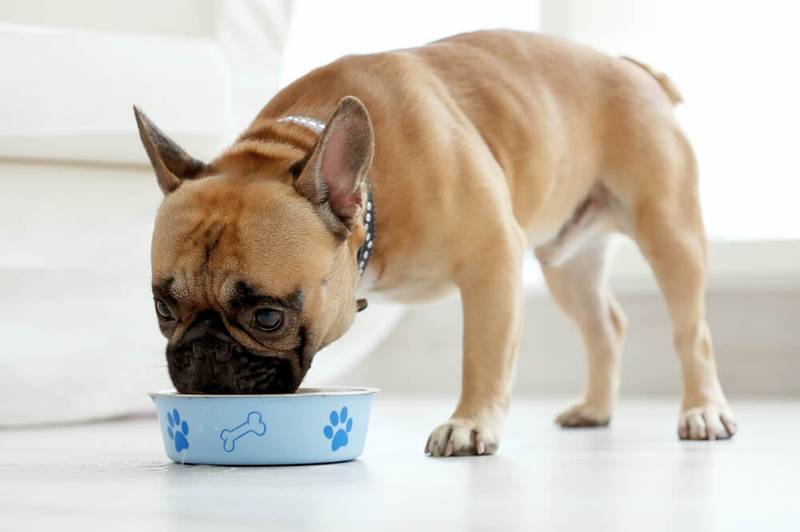
It is important to remember that there are foods that absolutely cannot be used in dog nutrition: chocolate, alcohol, avocados, grapes and raisins, onions and garlic, macadamia nuts, xylitol (a product for diabetics), yeast dough.
Do not allow your dog to eat food from the table, from the garbage, do not let her pick up anything on the street.
Do not use medication without first consulting a veterinarian, especially corticosteroids and NSAIDs (for example, Diclofenac for dogs is deadly for gastrointestinal bleeding).
It is also important to carry out annual preventive vaccinations and treatments against endoparasites (helminths and protozoa).
And remember: prevention is always easier than cure!
The article is not a call to action!
For a more detailed study of the problem, we recommend contacting a specialist.
Ask the vet
30 September 2020
Updated: February 13, 2021



